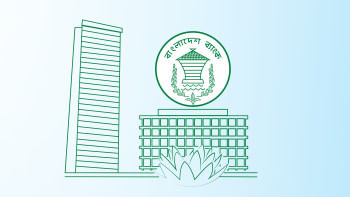Navigating pathways post-LDC graduation

Bangladesh is on the verge of graduating from the least developed country (LDC) category in 2026, which will be a significant milestone in the history of its economic journey. This graduation reflects major progress in our economic development, but it also brings new challenges—especially in international trade. It is essential for entrepreneurs and businesses to embrace true competitiveness in the global market to sustain this new status.
The biggest challenge we are likely to face post-LDC graduation is the loss of duty-free and quota-free access to key export markets. Currently, over 70 percent of our exports (mainly readymade garments) benefit from preferential trade agreements. After the graduation, these exports will be subject to potential tariffs of 8–12 percent in the EU alone, impacting billions in revenue. If we fail to secure alternative trade deals, our products will become more expensive and less competitive in global markets.
We must actively negotiate free trade agreements (FTAs) and preferential trade agreements (PTAs) with major export destinations such as the EU, the UK, and Canada. Engaging in the Generalized Scheme of Preferences Plus (GSP+) programme of the EU could help us retain tariff advantages. Strengthening regional trade partnerships within the Association of Southeast Asian Nations (Asean) and South Asia is also critical.
Efforts to diversify our export base are ongoing, but currently, industries such as pharmaceuticals, IT, and leather still lack the scale and global reach necessary to offset any decline in RMG exports. Post-LDC, Bangladesh must push hard to elevate these sectors to avoid concentration risks and maintain stable export income. IT exports alone could reach $5 billion by 2027 if properly supported. Policies that promote innovation, skills development, and infrastructure improvement will be crucial in the coming years.
After LDC graduation, we will need to comply with stringent labour, environmental, and sustainability regulations, especially from EU and North American buyers. For example, the EU's upcoming supply chain laws will require enterprises to ensure fair wages, labour rights, superior environmental practices, and sustainability in production. Noncompliance in these areas may lead to trade restrictions and bans, directly impacting exports. Entrepreneurs must invest in green production processes, improve workplace safety, and align with global ESG (environmental, social, and governance) standards. Government incentives for sustainable businesses will help support this transition. As an LDC, Bangladesh currently enjoys concessional financing from institutions like the World Bank's International Development Association (IDA), which provides low-interest loans and allows long repayment periods. After the graduation, we will have to borrow at higher interest rates.
According to the Economic Relations Division (ERD), Bangladesh could see loan rates increase by 2–3 percent, significantly raising debt servicing costs. The loss of preferential access to grants and soft loans will also affect small and medium enterprises (SMEs). Many SMEs rely on donor-funded projects and refinancing schemes to meet their financial needs. Without such support, it will become very difficult for early-stage SMEs to scale up in the long run. As an alternative, we can consider establishing dedicated SME funds, low-cost credit facilities, and venture capital initiatives. Collaboration among banks, microfinance institutions, and the government can help ensure accessible financing options for SME entrepreneurs.
With shifting global market trends and competition for stronger financial positions, Bangladesh may face increased pressure on the exchange rate and inflation. Rising manufacturing costs, energy price hikes, and currency depreciation could hurt business profitability. Macroeconomic stability will be vital in managing inflation and exchange rate pressures. Strong policy-level support and a robust monetary plan are necessary to maintain competitiveness.
For entrepreneurs, this is the time to invest in innovation, build resilient supply chains, and embrace digital transformation. Governments and businesses must work together to create an ecosystem that fosters sustainable growth. The post-LDC era is not just about survival—it is about thriving in a new, competitive global economy. It is about redefining success on the world stage.
The writer is a senior banker.

 For all latest news, follow The Daily Star's Google News channel.
For all latest news, follow The Daily Star's Google News channel. 



Comments